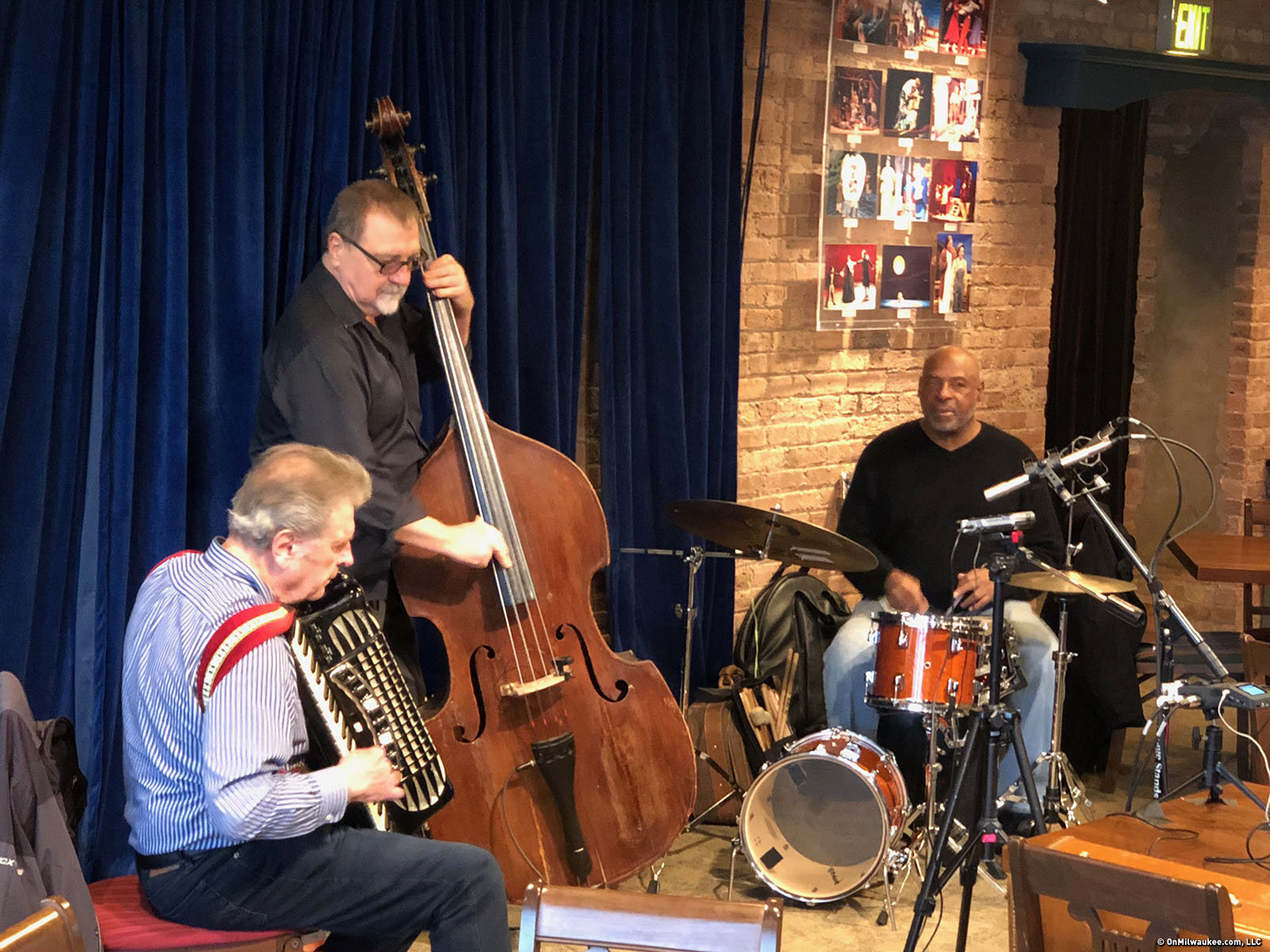{image1}Local jazz legend Berkeley Fudge sits humbly at a piano stool in one of the empty classrooms at the Wisconsin Conservatory of Music, where he has been teaching since 1972.
The years have been good to Fudge, who has been playing saxophone solo, or with his band, the Berkeley Fudge Quartet, since 1965. As Milwaukee jazz musicians go, he can definitely be considered "old school," but it's the greats he listened to on the radio that he considers to be the true pioneers of the music he holds so dear to his heart.
He recalls, "When I was a kid, there used to be a show called 'Jazz at the Philharmonic.' The show used to travel all over the country and Milwaukee was one of its stops. It was a big show. I got to see people like Dizzy Gillespie and Charlie Parker before they got to be big names."
Seeing these music legends left a lasting impression on the North Division High graduate. His parents were appreciators of his heroes, but they did not come from a musical heritage. So at the age of six, Fudge took his first steps toward his destiny by taking up piano, which he played for several years, but jazz wasn't being widely taught.
"They didn't even have teachers for (jazz) when I was learning," remembers Fudge, "you had to learn from somebody who was involved in it."
It wasn't until he entered high school he discovered the instrument that would change his life: the saxophone.
Following graduation, Fudge played all over Milwaukee, which in the 1960s had a thriving nightlife. Night owls were hopping from club to club looking for some music and fun. This is where Fudge's sweet sax sound came in.
"When I first started, there was a lot of jazz music around," he says. "There were a lot more places to play."
Times started to change and the nightlife was starting to become lifeless. A good friend gave Fudge a call asking him if he would like to teach at the Conservatory. It was an offer that he couldn't refuse.
The musician became a teacher, passing on the skills he had learned years before. Fudge continues to play with his quartet and is a member of the Conservatory's Faculty Jazz Sextet, where he plays along side his friends and colleagues which include guitarist Mike Plog and pianist Mark Davis.
He has appeared with Lena Horne, The O'Jays, Sonny Stitt and Roland Kirk, just to name a few. Fudge's dedication to teaching has brought him to Marquette University, University of Wisconsin-Milwaukee and the MATC Music Department. In 2001, he received the Wisconsin Area Music Industry (WAMI) award for Best Traditional Jazz Performer.
As with all music, trends come and go and styles progress. However, Fudge is unsure and frustrated about where the music he cherishes is going.
"As time goes by, you know things are going to change, but not always for the better.
"A lot of established players are moving toward the commercial thing because they make money. They want to make music, too. Some of it do it because they feel it, but they have a choice."
It's the saxophonist's appreciation for the artists he once listened to on the radio that keep him inspired, and it's their lack of limelight that annoys him.
"I don't think the real veterans are getting their due," he says, "Anytime a young person can do something, no matter what it is, people will jump on it. You then have a lot of new people playing, but they're not breaking new ground. I think it's OK to hear about the new people, but I don't think we should forget the people that laid it down for them."
As Fudge sees musicians come and go, he looks back on his life and feels satisfied. He holds no regrets about his life and has never seen himself doing anything else but playing and teaching.
"I've never made a whole lot of money, but I've managed to make a living," he says proudly, "I've been satisfied with that because I've been able to do what I want to do. You have the freedom to lay this music down like you want to. In jazz, there is no 'one' sound. You are able to have your identity out there."
In fact, it is on teaching where he finds his greatest achievement. "(I've) been able to pass (my knowledge) on. That's the only way to keep going. When you've seen one of your students succeed, you feel like you have done something."
Berkley Fudge the student had his radio, and now the students have Berkley Fudge, the teacher.







